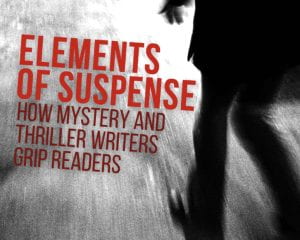So, the vacation comes to an end – well, soon. After a month in Europe it is a relief to be heading home with many new experiences to build into my next book. The main goal on this trip was not to produce another novel, but a photo book entitled “Faces of Europe.” I have accumulated a large number of “people photos” to add to the book, but the time away has also given me space to think about “Faces of Europe” is more depth. In fact, people watching is really observing a reflection of life. Europe is not just about Europeans; it is about the melting pot of Asians, Africans, Chinese, Indian, and Western and Eastern Europeans; it is about war and power struggles – D-Day celebrations and the war in Ukraine; it is about a cold war and a hot summer; of high prices and low wages; Olympic celebrations and the struggle to survive; it’s about Palestinian protests and threats of terrorism. “Faces of Europe” has become more complex than I imagined. There is nothing simple about Europe and it will be a challenge to assemble my photographs to reflect the joy, struggles and diversity I noticed through my lens. During my short stay in Europe I did manage a little minor editing on my new thriller, and even visited Menton – a place on the French Riviera that features in my first thriller, 3 WISE MEN. However, I didn’t feel that any changes needed to be made to the Menton details.
Uncategorized
Not writing – well, not intentionally!
 Well, dear bloggers, this may shock you—I am on a long vacation but have no intention to write another book. That’s right, it’s about celebration—celebrating my wife’s very special birthday in Paris. So, writing will take a back seat, though that’s not to say that I won’t find inspiration in being in different places and watching out for interesting characters or settings for my next novel. Will it be a thriller set in Vienna, or a romantic novel based in France? Who knows? The most wonderful thing about writing is that it has few bounds, and the richer the experience (either good or bad) can result in a more satisfying read. Well, that’s the intention.
Well, dear bloggers, this may shock you—I am on a long vacation but have no intention to write another book. That’s right, it’s about celebration—celebrating my wife’s very special birthday in Paris. So, writing will take a back seat, though that’s not to say that I won’t find inspiration in being in different places and watching out for interesting characters or settings for my next novel. Will it be a thriller set in Vienna, or a romantic novel based in France? Who knows? The most wonderful thing about writing is that it has few bounds, and the richer the experience (either good or bad) can result in a more satisfying read. Well, that’s the intention.
So, roll on Singapore, Vienna and so many other places – some we have been to before and some that are new. I must confess that my writing is richer from having been to unique and special places and I am grateful for the opportunity. I also feel obliged to share some of these with my readers. They add detail and authenticity to my writing—a firm foundation for the action. Which raises the question—how accurately do I write? The answer is ‘mostly’. I do take literary licence at times, but only to propel the action. where necessary :-).
The Inverse Parabola
 The more I write, the more I find myself believing in the inverse parabola. What do I mean? It’s like this—writing a novel keeps adding words and as the words increase the number of chapters grow too. words–>chapters–>book. At the peak of the writing output (the vertex if you like) the book is finished. But when the editing takes place, the number of words decrease again, like a descending parabola. From my own experience, this editing reduces the word count and often the number of chapters too. This reduction is sometimes painful, cutting out unnecessary dialogue/action/description. What is left is tighter writing, more immediacy and greater tension. Show me a writer who is increasing their word count and I can guess they are still working on an unfinished draft; show me a writer who is reducing their word count, and I know they are heading for a finished finished draft, ready for their literary agent and/or publisher.
The more I write, the more I find myself believing in the inverse parabola. What do I mean? It’s like this—writing a novel keeps adding words and as the words increase the number of chapters grow too. words–>chapters–>book. At the peak of the writing output (the vertex if you like) the book is finished. But when the editing takes place, the number of words decrease again, like a descending parabola. From my own experience, this editing reduces the word count and often the number of chapters too. This reduction is sometimes painful, cutting out unnecessary dialogue/action/description. What is left is tighter writing, more immediacy and greater tension. Show me a writer who is increasing their word count and I can guess they are still working on an unfinished draft; show me a writer who is reducing their word count, and I know they are heading for a finished finished draft, ready for their literary agent and/or publisher.
The Last Chapter
The last post was discussing chapters and letting them sit for some time before the final editing process. In my final chapter I came across this line:
Editing is Like Rotating Wine Bottles in a Cellar
 There is much debate and mystery to the idea of having to turn wine bottles to improve their flavour and consistency.
There is much debate and mystery to the idea of having to turn wine bottles to improve their flavour and consistency.
My book has 86 chapters and I look on each one as a bottle of wine, lying on shelves in a cellar. And each, like a good wine, needs to be left to age, then turned from time to time. I have left the ageing process alone and now feel that I am in the final stages of turning each bottle – that is, carefully editing each chapter and checking that it is ready for publication. I hope that when it is, it will taste and feel special to my readers, with no wasted words or any sentences that fail to support the “label”. Which segues nicely to the role of wine in my new book. Wine does indeed have a place or two, but only when characters meet. Of course, too much wine can lead to problems and this may well happen to one or two of my characters. All will be revealed in due course.
The Doomsday Clock
Founded in 1945 by Albert Einstein, J. Robert Oppenheimer, and University of Chicago scientists who helped develop the first atomic weapons in the Manhattan Project, the Bulletin of the Atomic Scientists created the Doomsday Clock two years later, using the imagery of apocalypse (midnight) and the contemporary idiom of nuclear explosion (countdown to zero) to convey threats to humanity and the planet. The Doomsday Clock is set every year by the Bulletin’s Science and Security Board in consultation with its Board of Sponsors, which includes nine Nobel laureates. The Clock has become a universally recognized indicator of the world’s vulnerability to global catastrophe caused by man-made technologies.
 The Doomsday Clock was set at two minutes to midnight in 2019 and at 100 seconds to midnight in 2022. Last year, we expressed our heightened concern by moving the Clock to 90 seconds to midnight—the closest to global catastrophe it has ever been—in large part because of Russian threats to use nuclear weapons in the war in Ukraine. How does this affect my book. Well, during the editorial phase, I had to adjust the Doomsday Clock in my manuscript too. Check out this extract:
The Doomsday Clock was set at two minutes to midnight in 2019 and at 100 seconds to midnight in 2022. Last year, we expressed our heightened concern by moving the Clock to 90 seconds to midnight—the closest to global catastrophe it has ever been—in large part because of Russian threats to use nuclear weapons in the war in Ukraine. How does this affect my book. Well, during the editorial phase, I had to adjust the Doomsday Clock in my manuscript too. Check out this extract:
[“Why MIT?” she repeated.
“My reason for choosing MIT was simple and complex.”
Claudine laughed. “Oh, that’s funny. What do you mean?”
“The simple answer is Jay Forrester.”
“Jay Forrester?” she asked. “I’ve never heard of him.”
“Yes, Mr. Forrester was a smart guy who pioneered work on digital computers here at MIT. He’s famous for his Global Sustainability Model, predicting that civilization would destroy the world in 2040. And what’s remarkable, is that his conclusion was the same as the one made by Isaac Newton in 1704. Their findings are confirmed by the Doomsday Clock.”
“Which is?”
“The time when our planet implodes. The Doomsday Clock is set at ninety seconds to midnight. Our time is almost up, and Armageddon will be upon us unless we do something radical to change the world.”
Claudine smiled. “That’s why I’m here.”]
Do Thrillers have to be Violent?
A very good question is posed by this post. Masterclass helps answer it:
6 Elements of a Thriller Novel
 Whether you’re a bestselling author or a fiction writing novice, approaching the thriller genre for the first time requires an appreciation of the tropes of the genre. Here are some elements you may want to consider:
Whether you’re a bestselling author or a fiction writing novice, approaching the thriller genre for the first time requires an appreciation of the tropes of the genre. Here are some elements you may want to consider:
- A clear threat: Any successful thriller has a clear and imposing threat. What form that threat takes can determine which of the many thriller sub-genres your story falls into. There are many different types of thrillers including crime fiction thrillers, political thrillers, and psychological thrillers. If you’re writing a political thriller centered around a government conspiracy, the threat might be the FBI.
- High stakes: Good thriller writers keep readers on the edge of their seats. This requires ensuring that there are massive problems facing a protagonist along with clear, dire consequences should they not succeed at solving the problems.Piling one problem on top of the other and putting your characters in seemingly unsolvable predicaments is one way to raise the stakes.
- Twists: Most good thrillers have a storyline that is full of cliffhangers and plot twists. Subverting your audience’s expectations and throwing unpredictable roadblocks in your protagonist’s path will produce a great page-turning thriller and keep readers engaged up until the end of the book.
- Dynamic characters: The thriller genre is generally defined by complex and engaging plots, but the best thrillers don’t compromise on character development. Most thrillers have an archetypal good guy and bad guy, but as a writer, it’s your job to fully flesh out a character and brainstorm their backstory and point of view. In Silence of the Lambs, readers are introduced to a main character and antagonist who both have full character histories that inform everything they do.
- Memorable locations: Writing thrillers is exciting because of the wide variety of settings you can explore as a writer. A clear and detailed location is an essential part of writing a good thriller. Your readers should feel as if your characters are inhabiting a rich and detailed world; they should be able to picture the physical environment in which your action unfolds.
- Action: You’d be hard pressed to find a thriller that doesn’t include a fair amount of action-adventure elements. Action doesn’t necessarily have to mean violence or pyrotechnics. If your thriller is more cerebral, your action might revolve around psychological games and manipulation. The important thing is to keep your storyline moving and include dynamic action as you start writing the first page up until the end.
What’s in a Name?
“What’s in a name? That which we call a rose by any other name would smell just as sweet.”

 William Shakespeare uses this line in his play Romeo and Juliet to convey the idea that the naming of things is irrelevant. Now, who would I be to question Shakespeare. But, a name may be relevant in conveying something more important than the person or object? For example, we name our children after their grandparents for example. In my new novel, why did I chose the name Captain Ted Cooper for my submarine commander? Ted Cooper was a close neighbour and friend I knew in high school. We were both in a school play – King Lear as it happens. I remember being a guard in the play and Ted was backstage. After the last performance, to celebrate we sailed a twenty-four foot wooden boat into the night. We were blind like King Lear – unable to see in the dark – and eventually beached on an island to get some sleep. The boat leaked, but we happily explored and had a great time. Ted went on to serve in the merchant navy as a captain before passing away at a rather young age. Using his name seemed most appropriate for the submarine commander in my book. Any other name was (sorry, Shakespeare) not quite as sweet. Of course, I did check out the list of USA sub commanders, the most famous being Richard H. O’Kane of World War II fame. There was no “Cooper” among them and, therefore, unlikely to be any objection.
William Shakespeare uses this line in his play Romeo and Juliet to convey the idea that the naming of things is irrelevant. Now, who would I be to question Shakespeare. But, a name may be relevant in conveying something more important than the person or object? For example, we name our children after their grandparents for example. In my new novel, why did I chose the name Captain Ted Cooper for my submarine commander? Ted Cooper was a close neighbour and friend I knew in high school. We were both in a school play – King Lear as it happens. I remember being a guard in the play and Ted was backstage. After the last performance, to celebrate we sailed a twenty-four foot wooden boat into the night. We were blind like King Lear – unable to see in the dark – and eventually beached on an island to get some sleep. The boat leaked, but we happily explored and had a great time. Ted went on to serve in the merchant navy as a captain before passing away at a rather young age. Using his name seemed most appropriate for the submarine commander in my book. Any other name was (sorry, Shakespeare) not quite as sweet. Of course, I did check out the list of USA sub commanders, the most famous being Richard H. O’Kane of World War II fame. There was no “Cooper” among them and, therefore, unlikely to be any objection.
Editing for Incremental Improvement
 “Incremental improvement means taking small steps consistently. This can lead to massive growth and change.” I share this to explain what I am doing, as a writer, to improve my book each day until it gets published. My recent editing has been taking time to make small changes to improve each paragraph, page and chapter. But, and it’s a big but, I have to do this consistently in order to see the results. I just hope my readers do too :-).
“Incremental improvement means taking small steps consistently. This can lead to massive growth and change.” I share this to explain what I am doing, as a writer, to improve my book each day until it gets published. My recent editing has been taking time to make small changes to improve each paragraph, page and chapter. But, and it’s a big but, I have to do this consistently in order to see the results. I just hope my readers do too :-).
It’s All About AI
 AI, or Artificial intelligence, leverages computers and machines to mimic the problem-solving and decision-making capabilities of the human mind. Every day, the news carries AI articles—stories of job losses and cloned personalities that threaten the very fabric of modern society. The reality is far more frightening. AI is developing at a super-fast pace and will impact us all dramatically within the new few years. ChatGPT is a chatbot developed by OpenAI and launched on November 30, 2022. Based on a large language model, it enables users to refine and steer a conversation towards a desired length, format, style, level of detail, and language. It’s a great tool for writing essays and scripts (e.g. for real estate advertising). But, ChatGPT is just the tip of an iceberg. My new novel is based on AI and how it may threaten the banking industry. In fact. my pitch has a focus on AI: Can Artificial Intelligence topple the global economy or restore financial equality? Depends whose side you’re on…
AI, or Artificial intelligence, leverages computers and machines to mimic the problem-solving and decision-making capabilities of the human mind. Every day, the news carries AI articles—stories of job losses and cloned personalities that threaten the very fabric of modern society. The reality is far more frightening. AI is developing at a super-fast pace and will impact us all dramatically within the new few years. ChatGPT is a chatbot developed by OpenAI and launched on November 30, 2022. Based on a large language model, it enables users to refine and steer a conversation towards a desired length, format, style, level of detail, and language. It’s a great tool for writing essays and scripts (e.g. for real estate advertising). But, ChatGPT is just the tip of an iceberg. My new novel is based on AI and how it may threaten the banking industry. In fact. my pitch has a focus on AI: Can Artificial Intelligence topple the global economy or restore financial equality? Depends whose side you’re on…
In the wrong hands, AI is difficult to overcome. What happens when a group of devious computer nerds steal your ID and, along with that, steal your voice? Think of the implications. How can you prove that your duplicate is not you? How can you convince your bank manager or boss that you are who you say you are, when another online “twin” makes the same claims?
Oh, it’s going to be a bumpy ride into the unknown with AI and a clever group of thieves have already planned the heist to outdo all heists. How will they do this? Well, you will have to wait for the release of my new book. 🙂
